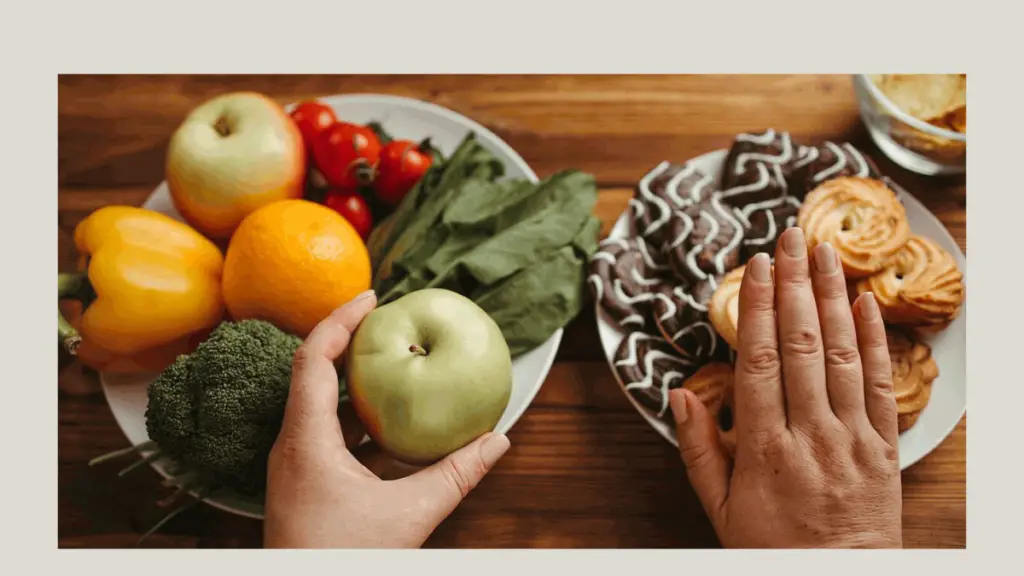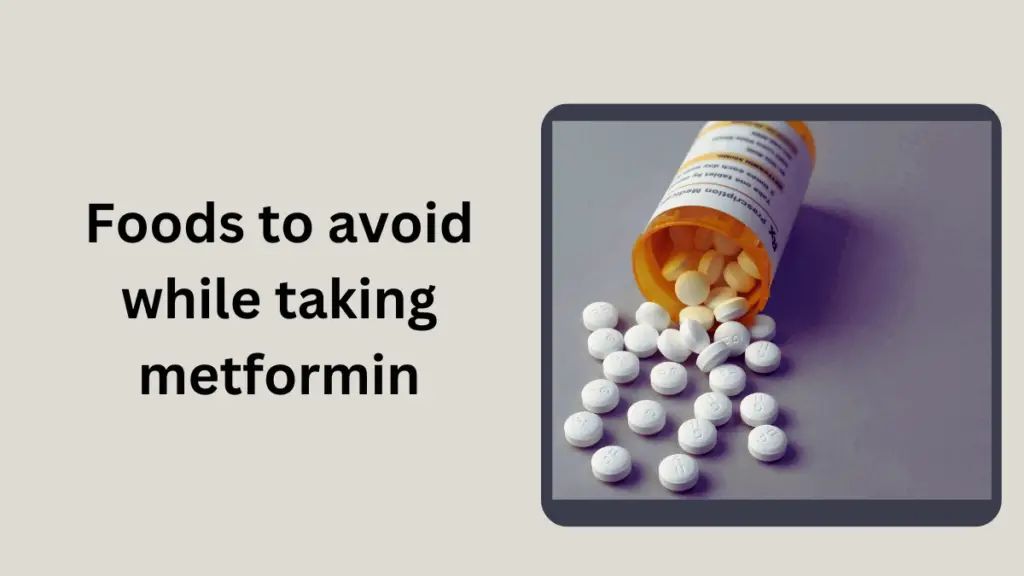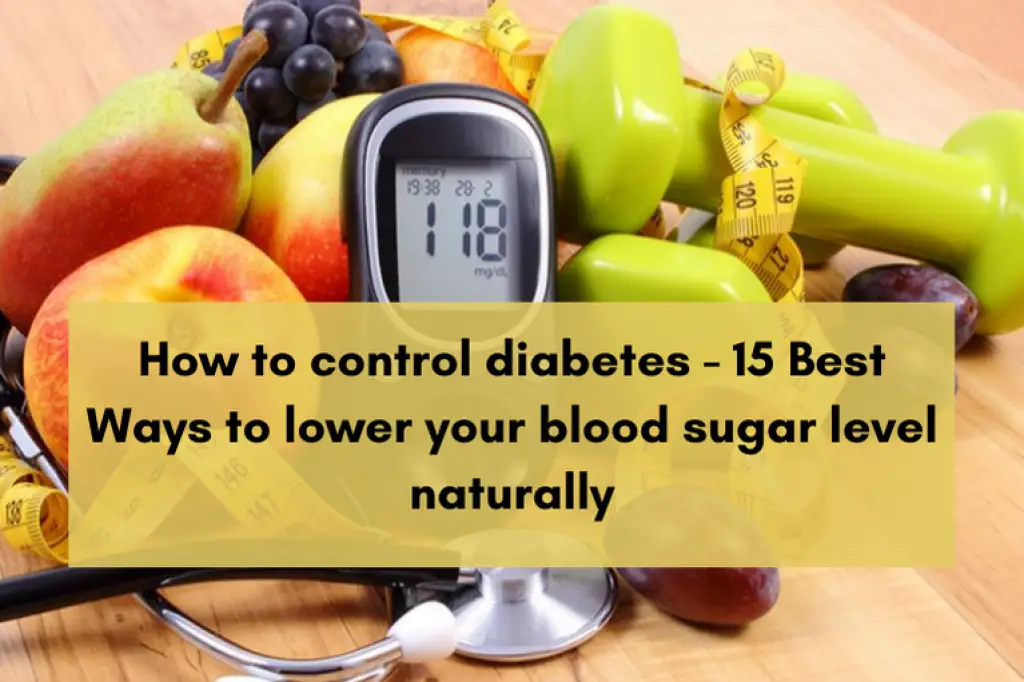Metformin is the most popular medicine among type 2 diabetic patients. It reduces the blood glucose level. It is an effective and first-choice medicine among diabetic patients. According to the ADA, it’s the first-line treatment.
Unlike the other medications, you don’t have to prevent as many foods. Generally, it doesn’t react with other foods; unlike other diabetic medicines, it doesn’t cause weight gain. Continue reading to find out about the foods to avoid while taking metformin.
What is metformin?
Metformin is a commonly used drug in treating type 2 diabetes, insulin resistance, and prediabetes. According to the CDC, type two diabetics are among the 90 to 95% of the 30 million diabetic population. Metformin is among the class of medications called the biguanides. This class includes medicines to stop sugar production in the liver.
Metformin also decreases the sugar absorption from food by a diabetic person. It means it benefits the body’s response to insulin production.
When should you take metformin?
Doctors recommend two to three times a day, depending upon your diabetic condition. Taking metformin with a meal reduces the side effects. The extended-release metformin is recommended once a day with dinner. Taking the metformin dosage in the evening controls the glucose level the whole night.
Foods to avoid while taking metformin
Though metformin doesn’t interact with many foods and nutrients, its interaction can affect its functioning, which reduces its effectiveness.
Here is the list of foods to avoid while taking metformin:
1. Alcohol
Doctors strictly advised avoiding binge drinking while taking metformin. Excessive alcohol can have a negative interaction with metformin. Drinking alcohol daily can hurt the liver and kidneys. Even if you have non-alcoholic liver and kidney diseases, consult your doctor before starting the medication.
In addition to alcohol, avoid drinking mixed drinks as they have high levels of added sugar. Moderation is the key when it comes to metformin. According to the CDC, a moderate amount of alcohol for a woman is no more than one drink daily, and for men, two drinks per day.
2. High fiber foods
We take fiber as a good thing to add to our diet, which is good except when taking metformin. According to the Experts, the intake of high-fiber food can make the working of metformin harder.
Researchers claim that having more than 30 grams of fiber daily can reduce its effectiveness. The fiber binds with the drug, which decreases its efficacy. So avoiding high-fiber foods like avocados, chia seeds, chickpeas, oatmeal, peas, berries, etc, is better.
There is limited research on high-fiber food, along with metformin, which makes space for more research to prove this.
3. Saturated fats

Diabetes can increase the risk of many inflammatory diseases like heart disease, resulting in avoiding saturated fats, especially when taking metformin. It is beneficial to stop the inflammation in the body even more.
The saturated fat can make you insulin resistant, making weight loss and blood sugar management more difficult. Fatty foods can make the blood sugar level stubbornly high, which can be problematic in the long term.
The familiar sources of saturated foods include milk, cheese, butter, and red meats. You don’t need to avoid dairy products altogether but instead use products with lower fat options, which is an excellent way to ensure that you get enough protein and calcium in the diet without all the saturated fats.
4. Grapefruit
Grapefruit is a type of food you should avoid to be on the safe side rather than being on the sorry one. According to the research, grapefruits can interact with many medications like blood pressure, antihistamines, anti-anxieties, statins, etc. It includes more than 85 medications.
There are specific chemicals in grapefruits that can show a reaction with the liver and gut enzymes, increasing the risk of overdose. The 2009 study on the grapefruit effects with metformin was conducted on non-diabetic rats. That means there is still a need for more detailed research and human trials to claim it as a fact.
5. Fried fruit
Metformin can result in an upset stomach, and fried foods are enough to harm the situation further. Fried foods take a long to digest, so instead of frying your meat and vegetables, try boiling, steaming, or even roasting them.
6. Sodium
If you have high blood pressure or a family history of hypertension, your doctor will recommend reducing the sodium in your diet. The increased sodium in the diet can cause the body to retain more water and the water part in the bloodstream.
When we have high volume going through the exact size of vessels, it can pressure the walls, increasing blood pressure. According to the survey, the average American consumes around 3400 mg of sodium daily, which reduces while the Dietary Guidelines for Americans recommends no more than 2300 mg for adults.
7. Simple and refined carbs
Simple and refined carbohydrates can raise the levels of your blood sugar. Carbs like soda, candy, and desserts should be avoided. Avoid refined carbs, including pasta, white rice, and white bread.
Foods to consider while taking metformin
When you are taking metformin, there are specific foods that can support your glucose control. Here are the names of the few recommended foods:
1. Healthy fats
Maintaining a low-fat diet is essential, but the type of fat also matters. Try adding healthy fat to your diet. Healthy fat includes avocado, olive oil, fish, and nuts. They all have unsaturated fats that benefit heart health and help in fighting inflammation.
2. Complex carbohydrates
Unrefined grains like quinoa, whole-grain bread, oats, and brown rice all have fiber. It slows down the rate of carbs conversion into glucose, which maintains the blood sugar level. It promotes healthy insulin and glucose levels that help in weight loss.
3. Fiber
Fiber is an essential nutrient that supports the digestive system, blood sugar level, and weight loss. Aim for 25 to 30 grams of fruits, vegetables, and whole grains daily. But like any other nutrient, the excess of everything is terrible. Avoid taking fiber supplements along with the diet, as it can affect the working efficiency of the metformin.
4. Low-carb fruits
All fruits have some beneficial nutrients, and low-carb foods are famous for their help in maintaining a better blood glucose balance. For example, peaches are not only delicious but also low in carbs.
5. Lean proteins
Lean protein minimizes saturated fat intake and controls blood sugar levels. Lean protein includes chicken, fish, tofu, turkey, and other lean protein sources.
6. Vegetables
Try filling half a plate of your every meal with non-starchy vegetables like leafy greens. Aim to fill half with non-starchy vegetables like broccoli, cabbage, asparagus, cauliflower, and other leafy green.
FAQ’s
Can I drink milk while taking metformin?
Dairy products like cheese, milk, and butter are the primary sources of saturated acids. You shouldn’t completely avoid fruits altogether, but instead try having lean proteins like tofu, turkey, and fish to increase the efficacy of protein.
What should I have for breakfast while taking metformin?
Here are the best breakfast options for diabetic patients taking metformin.
- Greek yogurt
- Eggs
- Oatmeal
- Overnight chia pudding
- Cottage cheese
- Wheat bran cereal
- Avocado toast (multigrain)
Which foods to avoid while taking metformin?
Unlike most medicines, metformin doesn’t react with foods. However, some specific foods can affect the effectiveness of metformin medicine. These foods include alcohol, high-fiber food, saturated fats, grapefruits, etc.
Can you take rice on metformin?
The experts recommend avoiding having white pasta, white bread, white rice, soda, candy, snacks, crackers, and desserts as much as possible. Eating these foods can increase blood pressure and make metformin ineffective by increasing the burden.
Conclusion
Metformin is a top-rated medicine used in the treatment of type 2 diabetes. It can lower the blood sugar level and HbA1c level and is also used in weight management. It’s best to avoid saturated fats, alcohol consumption, sodium intake, and processed and added sugar while taking metformin.
These are the common foods to avoid while taking metformin. Instead, they aim for a healthy diet rich in lean protein, healthy fats, unprocessed foods, fruits, and vegetables.
Having a healthy diet and increasing your physical activity, you can efficiently maintain your blood sugar level with the help of metformin.



